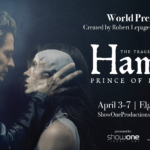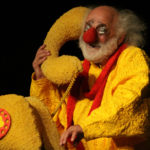Lucas Debargue makes a distinguished solo recital debut at Carnegie Hall
It must be a daunting task for the Carnegie Hall programmers to select which pianists are invited to play a solo recital in the Stern Auditorium. Mainly under the “Keyboard Virtuosos” umbrella, there are fewer than 20 piano recitals in a season’s curated series but many more tremendously gifted musicians eager to play in the vaunted hall. Nonetheless, balancing age, nationality, gender, public appeal, and other less obvious criteria, only a few are chosen. French pianist Lucas Debargue had not yet been among them.
The debut recital’s layout was similar to the one he gave in 2020 at National Sawdust in Brooklyn: several Domenico Scarlatti sonatas prefacing two towering, lyricism-imbued expressions of virtuosity – Ravel’s Gaspard de la nuit and Liszt’s Après un lecture de Dante. Considered as a whole, the four Scarlatti sonatas received a quite unconventional treatment. There was a rhapsodic, romantic, Chopinesque quality in their rendition that one doesn’t necessarily associate with Scarlatti’s keyboard music. While chromatic or dynamic contrasts were over-emphasised, the pearly delicacy, the mysterious emerging from all that apparent regularity, was insufficiently brought forward.
Gaspard de la nuit, a veritable calling card for the French pianist, sounded magnificent. Despite Debargue’s unconventional training path – not playing piano at all in his late teenage years – his dazzling, occasionally idiosyncratic technique produced splendid results. In Ondine, melody and harmony converged, making it impossible to distinguish between the water’s glittering surface and its inscrutable depth. Le Gibet was embossed with unexpected exclamation points. Scarbo’s diabolic pirouettes were draped in phrases of mesmerising elegance.
Debargue opened the second half with three Chopin works. Results were mixed. The Ballade no. 2 in F major lacked a certain level of coherence: the calm introduction was in need of higher tension, while the Presto con fuoco was over-tumultuous. The chromatic progressions in the Op.45 Prelude in C sharp minor were exquisitely brought to fore; the right-hand melody floated with ease above hazy arpeggios. The pianist also handled well the dichotomy between the prescribed rhythmic pattern of the dance and the extemporaneous character of the fantasy in the hybrid Polonaise-fantaisie, Op. 61. The transitions in and out of the meditative segments somehow prefigured a Debussy-like soundscape.
Debargue’s sense of expressive resolve was again palpable in Liszt’s Après un lecture de Dante. Claiming that “his connection to music was very much influenced by his connection to literature”, Debargue conjured Dante’s imagery with the same conviction as he evoked Aloysius Bertrand’s prose poems in Gaspard de la nuit. Technically immaculate, with mighty octave sequences, the depictions of hellish imagery were particularly terrifying. The recurrence of the “Devil’s Tritone” in different disguises, the many transformations of the two main themes, or the cyclical traversal of several tonalities were all knowingly handled in this tour de force. On top of everything, there was a sensation of the pianist’s infallibility that conquered the listeners.
Ovations were rewarded with two encores: a serene version of another Scarlatti gem and Debargue’s own Toccata in B minor, with its tinges of Schumann and Rachmaninov. In a world where the interpretations of various pianists become indistinguishable, Debargue’s renditions undoubtably have their own character. If this is sufficient to mark him as one of the greatest pianists of his generation is still an open question.



